Sometimes it’s good to read about issues other writers face, and how they find ways out. There are no tricks, no clear path, and rules have limits, which award winning author John Casey discusses in essays with origins as craft talk given at the Sewanee Writers’ Conference in Tennessee. He quotes Edward Gibbons, when at the beginning of volume 7 of The History of the Decline and Fall of the Roman Empire he recounts some treatises on strategy, but notes, “The discipline of a soldier is formed by exercise rather than by study; the battles won by lessons of tactics may be numbered with the epic poems created from the rules of criticism.”
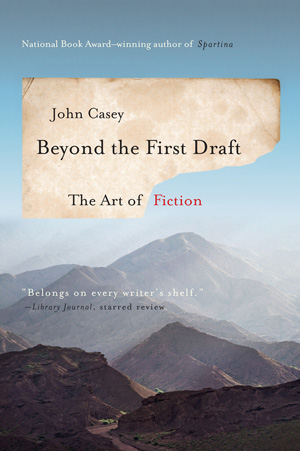
We should learn rules, but realize that turning them around may yield much the same. In the first chapter, John Casey takes on some tried and sometimes true writing advice and notes what most works for him. For instance, he examines the good of writing what one knows, but its trap of nostalgia. He mentions that his major work as a writing teacher is not to correct work, but to show students what you see in it. He reports a story that Katherine Anne Porter taught simply by reading students back their work to them. He speaks of being a student in the MFA program at Iowa in the 1960’s, when a requirement for writers was to take a course in another art: learn an instrument, take a life drawing class, or work on a soundless movie. He thinks part of the reason for this was to learn to isolate the elements of the art, in a way that can be hard to do with writing, which may feel too familiar. Metaphors of process can be drawn from other arts.
I particularly liked the chapter in Beyond the First Draft called “Things,” which considers how setting plays a part in plot and how to decide what should be revealed when. A novel set in the past may include habits or work unfamiliar to most, so decisions must be made about when explanations or exposition is given. We might think to give it at the outset, but John Casey advises best to wait until it matters most. He offers the case on instruction on rock climbing given at Outward Bound Schools. Often the instructor says little until someone is halfway up a cliff. “At that point, most people are all ears.”



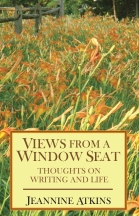

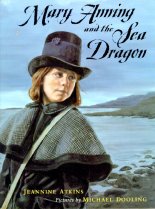
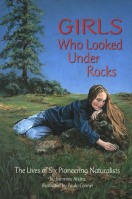

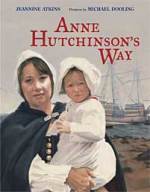
So excellent, Jeannine. Thank you!!!
By: Sarah Lamstein on April 4, 2017
at 1:19 pm
Thanks, Sarah!
By: jeannineatkins on April 4, 2017
at 1:38 pm
This sounds like a great book, Jeannine. I love to think of the setting as a character and how it informs both the MC and the plot.
And just read & LOVED Stone Mirrors. I love how fully imagined Edmonia is and its gorgeous poetry 🙂
By: mariagianferrari on April 4, 2017
at 1:20 pm
I get why setting can be taught as well below plot and character, but it can so inform those. I’m so happy you liked Stone Mirrors! I began with such a bare bones chronology of Edmonia’s life, that the places where she lived, the things she saw and touched, were what I dwelled on to get closer to her insides — she was not a person of words.
By: jeannineatkins on April 4, 2017
at 1:40 pm
I like hearing what other writers do. I keep writing myself into the weeds with my essay but somehow I always find my way out. One thing I have vowed to do the next time I write the first draft is to use dictation software to get it out so that I can’t edit along the way. My edit voice is way too loud and I figured I can “drown it out” just dictating my thoughts. I use Dragon all the time on my phone when I want to capture ideas.
By: susanwbailey on April 5, 2017
at 7:07 pm
Yes, even though I feel pretty comfortable in my own process, hearing what others do can make me rethink or lean another way. Your plan is fascinating, though I could never do it — I really need to see the words on the page. But I love this as a technique toward a more authentic voice, and it makes sense for you as a music lover and person sensitive to sound. Look forward to hearing more!
By: jeannineatkins on April 5, 2017
at 8:25 pm
Thanks! I talk to myself all the time and am constantly dictating notes as my brain decides to dump so it makes sense for me. I need to get my hands away from the keyboard so the words will flow.
By: susanwbailey on April 5, 2017
at 8:54 pm